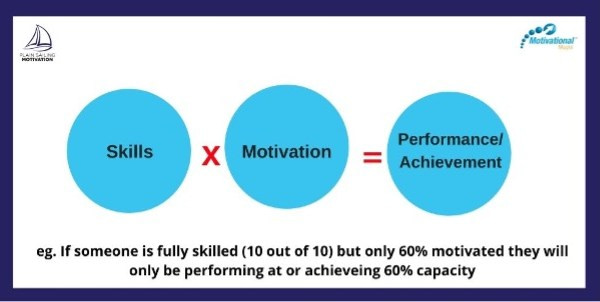We all know how much easier it is for us to get out of bed and how much more we achieve when we are motivated. We also know that when we are motivated our wellbeing and mental health improves dramatically.
So why don’t we spend more time thinking about what motivates us and how we can support our own motivators and, importantly, our team and our organisation’s motivators?
What difference would it make if we did do that? The evidence shows that it is quite a lot!

Our motivation impacts on everything we say and do – it impacts on our speed of decision making, our attitude to change, and our relationships with others. If we understand more about motivation we can support ourselves and others and we can have a major impact on engagement – recruiting, managing and importantly, retaining engaged and motivated staff.
Understanding what motivates people is the key to unlocking their potential
We all need different things to motivate us.
Daniel Pink (author of Drive), suggests there a 3 things we need to motivate us – autonomy, mastery and purpose.
James Sale, who developed the excellent self perception inventory tool, the Motivational Map® suggests we have 9 different motivators (or needs). These are security and stability, recognition, having meaningful relationships, being in charge, earning and competition, Learning and development, creativity & problem solving, freedom and Independence and making a difference.
Some people have two or three motivators that are crucial to them – others have a range of motivators that are important to them – those with a range need variety in their work to ensure they stay engaged.
Each motivator or, in other words, need, is met in a different way – those who love learning are motivated when developing their expertise and having, or being, a mentor, people who are motivated by freedom and independence need to have some level of autonomy in what they do while those who like security and stability like to know what they have to do and when it needs to be done by – they love order and routine.
By understanding which motivators are important for each role we recruit to, we can appoint people with not only the right skills but also the right motivators for the role and the organisation. For example, if you are a forward thinking organisation you are likely to want people motivated by thinking outside the box and coming up with new ideas. If you employ sales staff they are likely to be more successful if they are competitive and for people in an organisation where customer relationships are key, employing someone who goes to work to have meaningful relationships will mean not only that they will enjoy the role, their performance will be greater too.
By understanding what motivates each member of the team we can ensure we are managing and supporting them in the right way – improving their performance and supporting their wellbeing.
Sarah Stones
Motivation Specialist, Plain Sailing Motivation




